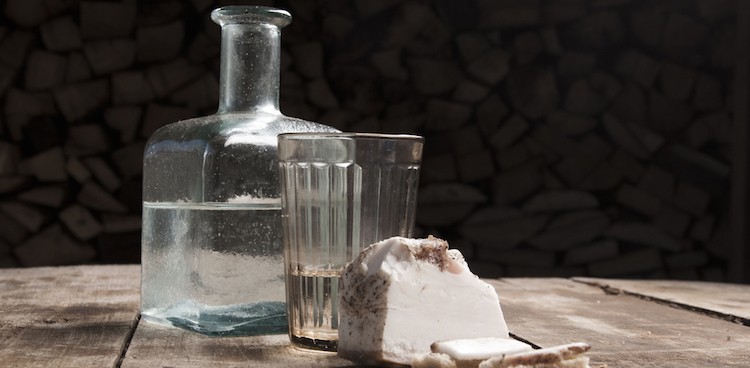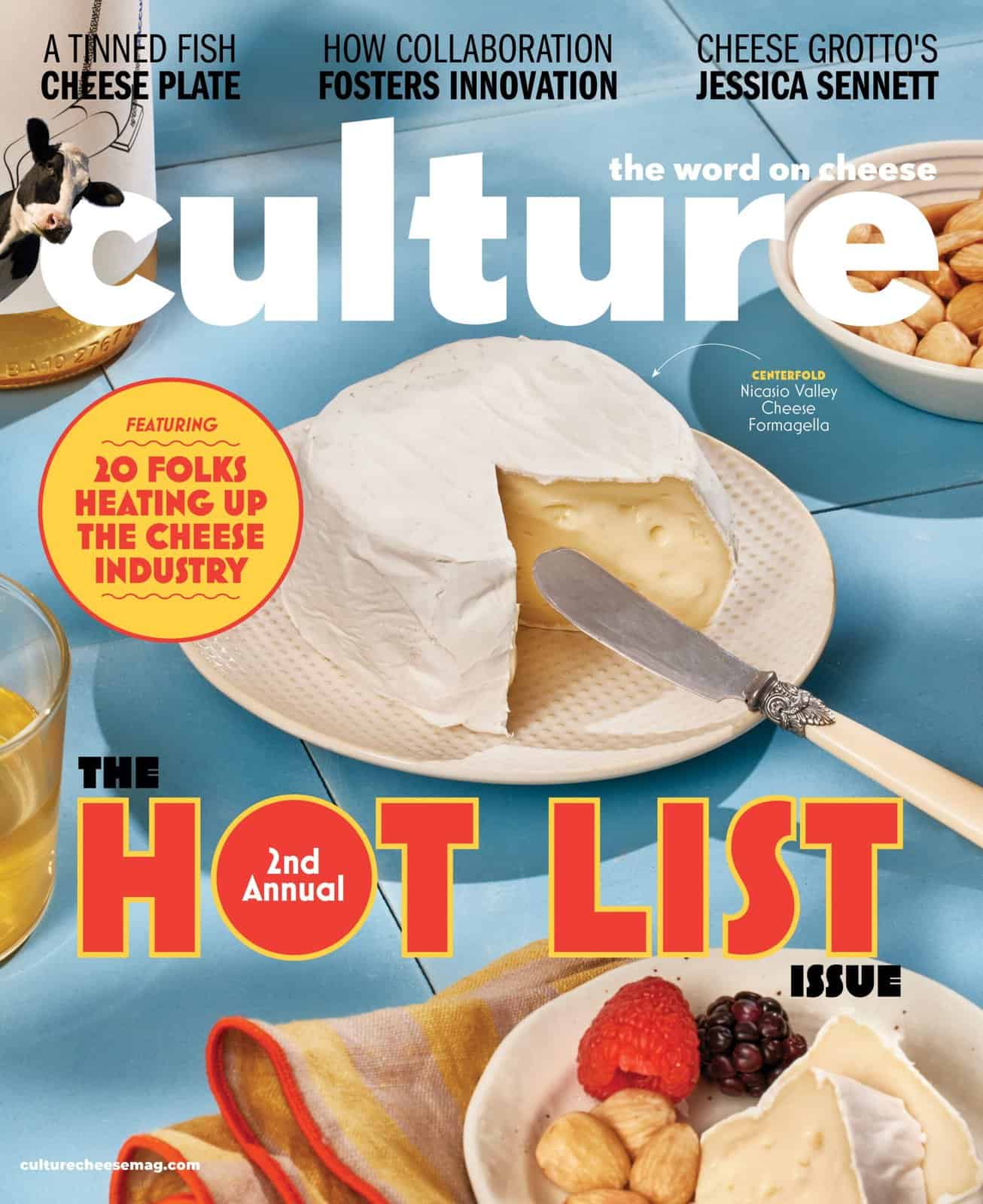
Rona Sullivan grew up in the mountains near Franklin County, Va.—known as the Moonshine Capital of the World. Today, she wraps her Moonshine goat’s milk cheese with cornhusks soaked in the high-octane hooch of her home county, resulting in tangy curds with a kick of white lightning.
Since opening Virginia’s first USDA-certified, self-contained micro-dairy in 2003—Bonnyclabber Cheese Co. at Sullivan’s Pond Farm—Sullivan and her family have released a medley of small-batch goat’s milk cheeses with an eye toward local heritage.
“A lot of people say that cheese is new in the South, but it’s not—that’s one of the reasons I decided to shine the light on the settler days in Virginia,” Sullivan says. “The Scots-Irish settlers would eat fresh cheese rather than age it, because some of them didn’t have time to age it . . . We use old-world traditions and name cheeses for Virginia places to highlight the history from the 1500s on.” (Other regionally inspired Bonnyclabber cheeses include Rocky Mount, Chesapeake Blue, and Tidewater.)
Sullivan admits to having a soft spot for fresh, raw-milk cheese, but—as with moonshine throughout history—the federal government limits certain cheese production methods. With that in mind, Bonnyclabber Cheese Co. makes 60-day-plus aged cheeses with raw milk and fresh cheeses with pasteurized milk.

Image of Bonnyclabber moonshine cheese courtesy of The Birch
In addition, because of local regulations, Sullivan is required to wrap each piece of cheese individually for sale. Hating the idea of packaging her cheese in plastic and potentially wasting countless unused portions, she began researching more time-honored techniques. The organic solution: bandaging curds in fig and chestnut leaves, beeswax, and cornhusks. These wraps lend unique flavors and also make the cheeses recognizable to consumers.
For Moonshine, Sullivan macerates cornhusks in 100-proof, clear corn whiskey before swaddling the cheese with them, which gives the paste a sharp hint of flavor. When she started experimenting with the cheese a decade ago, she dunked the wheels directly in moonshine, but they turned out too boozy.
“Soaking the cornhusks does impart some flavor and causes [the cheese] to have a long shelf life, but it doesn’t make it strong,” she says—meaning that kids can have a taste, too.
While many cheeses are washed with alcohol for differing effects, Sullivan chose moonshine for its clean flavor and color. She sources hers from Belmont Farm Distillery in Culpeper, Va., where owner Chuck Miller carries on his grandfather’s practice of making moonshine in a copper pot still. Unlike the original outlaw operation, however, Belmont Farm products are legal and distributed as far north as New York.
Thanks to Moonshine’s ties to Appalachian lore, it’s a hit with cheese lovers who have a soft spot for early Americana. Dany Schutte, a buyer at Southern Season (with stores in North Carolina, South Carolina, and Virginia), counts herself among the cheese’s fans. “It’s delicious,” Schutte says. “What moonshine does for the cheese is make it creamier—it also adds a little acidic quality to it.”
The cheese has sold well in Northern California and Nashville, Tenn., where it’s stocked by a handful of specialty stores. It’s also available on the Sullivan’s Pond Farm website.
“Right now, it’s more popular with people who are not from around here,” Sullivan says. “In Virginia, it’s just beginning to catch on.”
Photo Credit: Photo of moonshine with cheese courtesy of Shutterstock.com




